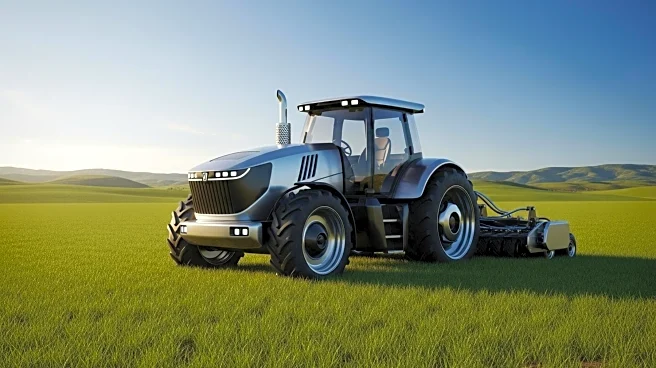What is the story about?
What's Happening?
Agritechnica 2025, a leading trade fair for agricultural machinery, is set to showcase the latest advancements in autonomous and semi-autonomous technologies. Scheduled for November 9-15, 2025, in Hanover, Germany, the event will feature innovations in automation, robotics, and artificial intelligence (AI) aimed at enhancing agricultural practices. Modern agricultural machines are increasingly equipped with GPS, sensors, cameras, AI, and machine learning, allowing them to perform tasks such as precision sowing, weeding, fertilization, and crop protection with minimal human intervention. These technologies are particularly beneficial in specialty crops and organic farming, where manual labor is intensive and costly. The fair will also present retrofit kits for tractors, enabling them to operate autonomously or via remote control, and highlight the Digital Farm Center, which will display cutting-edge technologies in digital farming.
Why It's Important?
The integration of autonomous technologies in agriculture represents a significant shift towards more efficient and sustainable farming practices. By reducing the reliance on manual labor, these innovations can help address labor shortages and increase productivity. The ability to perform tasks with precision and around the clock can lead to substantial time savings and improved crop yields. Additionally, the adoption of these technologies can enhance sustainability by optimizing resource use and minimizing environmental impact. However, challenges such as legal and safety regulations, as well as connectivity issues in rural areas, need to be addressed to fully realize the potential of autonomous farming.
What's Next?
As the agricultural industry continues to evolve, stakeholders including farmers, manufacturers, and policymakers will need to collaborate to overcome regulatory and connectivity challenges. The development of legal frameworks and infrastructure improvements, such as enhanced broadband coverage in rural areas, will be crucial for the widespread adoption of autonomous technologies. Furthermore, funding programs to support the purchase of agricultural robots could encourage more farms to invest in these innovations, driving the industry towards a more technologically advanced future.
Beyond the Headlines
The shift towards autonomous farming raises important ethical and cultural considerations, such as the impact on rural communities and traditional farming practices. As technology becomes more integrated into agriculture, there may be concerns about job displacement and the loss of traditional skills. Additionally, the reliance on technology could lead to increased vulnerability to cyber threats and data privacy issues. These factors highlight the need for a balanced approach that considers both the benefits and potential drawbacks of technological advancements in agriculture.















